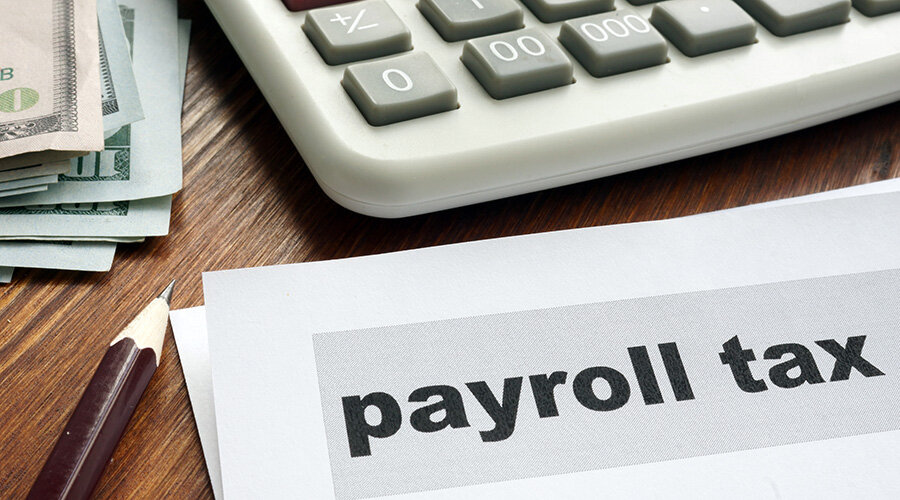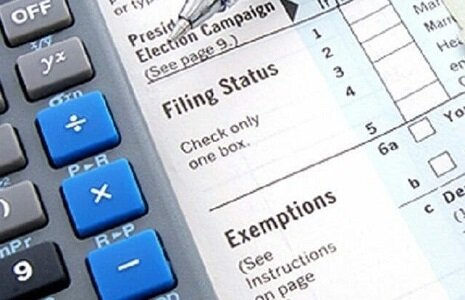5 Myths of Tax Planning

They say all you need to survive is food, shelter, and love.
I think they forgot tax planning.
It doesn’t have the kind of marketing that love gets, but it’s the most unbelievably useful financial practice you might never have heard of.
Picture this: over the past 40 years you have been stockpiling savings into your employer retirement plan. But on your retirement date, it’s worth less than what the statement says. Sound alarming? Well, this would be the case if you haven’t given any thought about tax planning for those 40 years, especially around your retirement.
The IRS is not-so-patiently waiting to take anywhere from 0% to 47% of your pre-tax retirement account. Our goal as tax planner is to reduce your total lifetime tax to get you closer to the 0% than the 47%.
When I first mention tax planning, I often find that people have some pretty profound mistaken beliefs about it. Here are five myths I hear the most:
#1 – Tax planning has to be complex.
Surprised? Don’t be, even though an alarming number of tax planning “experts” insist that the only way to lower your total lifetime tax bill is to implement some ultra-obscure tax strategy. While yes, these strategies may work for a select few, the “experts” often gloss over the “boring” and easy to implement strategies.
For example, implementing annual Roth conversions, HSA strategies, or selecting between pre-tax or Roth contributions can potentially reduce your total lifetime tax by tens of thousands of dollars.
There’s an old adage that’s a great frame of mind for your tax planning strategy:
“Small hinges swing big doors.”
Little choices now can make a big difference later.
#2 – The goal of tax planning is to pay zero tax every year.
A year where you pay zero tax is a lost opportunity in the realm of tax planning. When we look at successful tax planning, we want to see a reduction in your total lifetime tax paid.
This means potentially paying more tax one year and less the next. Years with lower income can provide a great opportunity to implement a number of tax strategies (capital gain recognition, Roth conversions, etc.)
The professional doing your tax planning should be computing tax projections each year to determine what strategies are best to implement. As we like to say at Note, “pay the IRS every dollar you owe, but don’t leave them a tip.”
If your wallet’s feeling too heavy or you’re just feeling extra patriotic, the U.S. government happily takes donations against the national debt.
#3 – Your accountant does tax planning for you.
I’m sure there are some accountants who do real tax planning, but speaking from experience, the vast majority do not. While having a rockstar accountant in your corner helps, they tend to make better historians than planners.
Your accountant is more like a rearview mirror. They’re useful, but unless you plan on driving in reverse, you’re going to need someone looking down the road with you. Your tax planner is more like a windshield. It’s crucial to look through the windshield and have someone planning out your future tax strategies.
Know what’s even better? If your financial planner and accountant can work together closely to ensure the tax strategies get reported and implemented correctly.
#4 – The benefits of tax planning can be seen quickly.
Tax planning (when done right) is more like well-aged bourbon than lemonade. If you have a short-term frame of mind, you might still come out with a good outcome. But if you keep your sights on the long-term and give it years to mature, you can have an amazing product to enjoy.
There are almost always strategies to implement now to see a pay off in the short term, like safe harbor payments to avoid an underpayment penalty. But most strategies need time to mature.
For example, if we decide to do a six-figure Roth conversion, it might take decades to benefit from that strategy. But the models suggest that a conversion like that could generate seven figures worth of tax savings.
Patience can pay off.
#5 – Tax planning is only for the “rich”
Ever read a book on tax planning? Probably not! But if you had, it would probably sound like you need to own a yacht or a villa before tax planning is relevant. It’s not true!
Every person who is paying taxes can and should implement some sort of tax planning strategy.
There are strategies to utilize no matter your income or net worth. It all comes down to being intentional with your personal finances. As we’ve seen with our clients, what you give your attention to makes all the difference.
Whether that’s making the intentional choice to save in pre-tax dollars, or after-tax dollars, or both. Knowing how different retirement accounts work is tax planning. Deciding which ones are best for you and your goals is tax planning!
If you want to be intentional with your tax planning and/or your personal finances and don’t know where to start, I’d urge you to seek the help of a tax planning professional.
It’s never “one and done”.
Tax planning is not just a one-time thing. You should have eyes on your tax return and tax planning strategies each and every year.
Here’s three easy steps to get you started:
- Review your prior year tax return. It’s important to understand your income and how it affects your total tax. Take note of your total income, taxable income, total tax paid, and marginal tax rate.
- Understand your eligibility to contribute to pretax, Roth, and After-tax retirement accounts. Be intentional with how you will fund each.
- If all of this seems overwhelming, I urge you to reach out to your financial advisor.
If tax planning isn’t in your advisor’s arsenal, you and I should talk! Schedule a call with me here:
Or watch my videos on all things financial:
No portion of this commentary is to be construed as the provision of personalized investment, tax or legal advice. Please consult with the appropriate professionals for advice that is specific to your situation. Note Advisors, LLC can assist in determining a suitable investment approach for a given individual, which may or may not closely resemble the strategies outlined herein.








